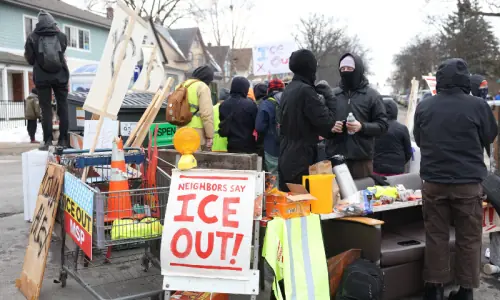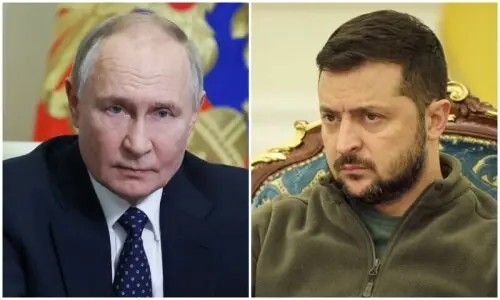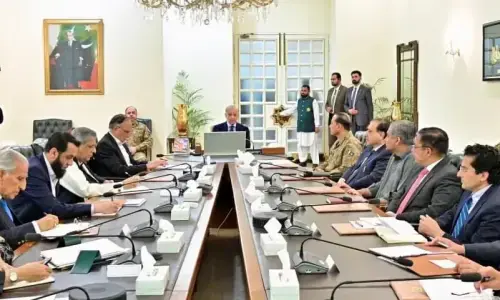NAIROBI: Here are some of the key players in the violence: some driving it and others trying to stop it.
KIIR AND MACHAR: Kiir and Machar are former rebel leaders who rose to power during Sudan’s 1983-2005 civil war between north and south — a conflict in which the two men fought each other — before South Sudan won independence in 2011.
They come from the south’s two main ethnic groups — Kiir from the Dinka people and Machar from the Nuer — tribes that are themselves split into multiple and sometimes rival clans.
UN experts say Kiir and Machar are both responsible for most of the violence committed during the war, which has seen tens of thousands killed.
Civil war began in late 2013 when Kiir accused Machar of plotting a coup. Following an August 2015 peace deal Machar returned to Juba in April, along with 1,500 troops who are based in basic camps on the outskirts of the city and were only permitted to carry light weaponry.
Kiir’s army — equipped with tanks, artillery and attack helicopters — were supposed to withdraw from the city leaving only a similar-sized force behind.
HARDLINERS: The fighting has fragmented and multiple militia forces now pay no heed to either Kiir or Machar.
There are also reported divisions within both camps. Both Kiir and Machar were at the presidential palace to issue a joint appeal for calm on Friday when heavy fighting erupted outside.
Analysts say hardliners on both sides never supported the August 2015 peace deal and instead want to end the conflict through military means.
Key figures include army chief Paul Malong, a top general and powerful politician who commands an ethnic Dinka militia. He is a long-time ally of Kiir and opposes power-sharing with Machar.
Machar’s authority over generals and troops is also in question, in particular his command over ethnic militia such as the so-called ‘White Army’, a fearsome force of cattle-raiding youth who pay little heed to anyone but their direct leaders.
NEIGHBOURING NATIONS: Past peace efforts have been led by regional nations, including the East African bloc IGAD. Ethiopia and Kenya have hosted multiple rounds of peace talks.
But neighbouring states are also accused of taking sides in the conflict.
Sudan is accused of backing rival forces to destabilise the country, claims it denies, while Uganda sent in troops in 2013 to prop up Kiir.
INTERNATIONAL PRESSURE: Internationally-backed ceasefire monitors led by Festus Mogae, a former Botswana president, have pleaded for peace. Their ceasefire teams were repeatedly blocked in recent weeks.
Past warnings — including UN sanctions slapped on top commanders from both sides and stern words from IGAD, the African Union and others — have done little to stem the violence.
More than half of the 12,000 United Nations peacekeepers are tied up guarding more than 160,000 civilians sheltering behind razor wire in their bases across the country, including more than 30,000 in Juba alone. Thousands more have sought shelter in recent days.
Juba’s once-close allies — especially the United States, Norway and Britain, who helped negotiate peace with the north and have led efforts to pour in billions in failed development projects in the south — appear to have little influence to end the conflict.
China, once the main buyer of South Sudan’s devastated oil industry, is mourning the death of two of its UN peacekeepers in Sunday’s battles.
Published in Dawn, July 12th, 2016
































